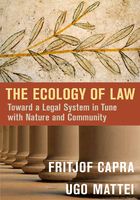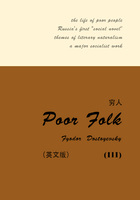Zeno and the Tortoise The use of reductio ad absurdurn
There is a common suspicion in the more refined bar rooms that homophobia, far from denoting red-blooded heterosexuality, in fact belies an inability to cope with one's own repressed homosexual leanings. But if hatred of others springs from hatred of oneself, then by the same token we would expect Ku Klux Klan members, for example, to have a repressed African-American side to their personality. This line of ridicule is known as reductio ad absurdum, which means literally 'reduce to absurdity'. We use this device whenever, instead of arguing that a position is untrue, we examine what would follow if it were correct in order to derive unacceptable results. In ordinary life, ridiculing someone else's argument is certainly easier than constructing a position of one's own. It is no different in philosophy. Where we must wait for the passage of time to reveal the absurdity of a government policy or an over-hasty marriage, in logical argument the process is altogether quicker.
The first philosopher to employ reductio ad absurdum was Zeno, who (according to Plato) was a tall and graceful Greek born around 490 BC in Elea, a town now in southern Italy. Zeno was a pupil of the philosopher Parmenides, who taught that all the many and varied things that seem to exist are actually a single everlasting reality that he called 'being'. He argued that the negation of being, along with any imagined changes it might undergo, is in fact impossible. Only about two hundred words of Zeno's writings survive, but it seems that as a young man he wrote a work of philosophy with which he may not have been entirely pleased and which was circulated without his knowledge. The book did, however, make him famous in faraway Athens. Plato relates that Parmenides and Zeno visited the city together in around 450 BC where they met the young Socrates. Zeno stayed a while, charging noblemen for the privilege of listening to him hold forth. According to legend, he became involved in politics on his return to Elea and plotted to overthrow the city's tyrant, Nearchus. Before the conspirators could act, Zeno was arrested and tortured to death for his treason. Several stories tell of his interrogation. In one, he named the tyrant's friends as his co-conspirators rather than betraying his accomplices. In others, he bit off his tongue and spat it at Nearchus or even leaped upon the tyrant and bit off his nose. These tales are not as far-fetched as Zeno's own philosophy.
Zeno wanted to prove that the multiplicity that the world exhibits was an illusion and that reality was composed of an eternally unchanging oneness. He disavowed any notion of time, motion or any kind of plurality among objects. He attacked our ordinary notions of space and time by assuming their truth and taking the consequences as far as they would go. The result of Zeno's efforts was a collection of forty paradoxes. Most of these have been lost, but three of them in particular have been causing problems for philosophers and mathematicians for two and a half millennia.
The most famous of Zeno's paradoxes is the story of a race between Achilles and the tortoise. Since Achilles is a very fast runner, the tortoise is given a ten-yard head-start. This may not sound terribly generous to the tortoise, but in fact it is enough to win him the contest. When the race begins, Achilles is quick off the mark and soon makes up those ten yards. By this time the tortoise has managed to advance just one yard, which Achilles then covers in a single bound. Now, however, the tortoise has managed to advance a further three inches. Picking up speed, Achilles crosses those inches only to find that the tortoise has moved on an extra inch. By the time Achilles traverses that inch, the tortoise will in turn have advanced some further distance, albeit a very short one. Zeno argues that no matter how fast Achilles runs he will never be able to overtake his rival, because in order to do so he must first draw level with him. This can never be achieved because as long as it takes Achilles some time – however little – to reach the tortoise's position, the creature will have had time to move on a fraction. Though the distance separating them draws ever shorter, it can never dwindle to nothing. The tortoise will therefore remain in the lead for ever.
If this is not frustrating enough for Achilles, things get even worse for him in the paradox of the racetrack. In order to reach the end of a course, Achilles would first have to reach the halfway mark. After that, the remaining distance would have its own halfway mark to be reached. The final quarter can also be divided into two, and so on, it seems, for ever. To get to the finishing line, Achilles would have to travel through an infinite number of divisions of the track. Since each one of these segments must comprise some distance and take some time, however minute, to cross, it will take him for ever to finish the course. Each segment may be very small, but an infinite number of them will make for an infinite distance. Fortunately, or unfortunately, Achilles will not have to worry about running until the end of time as, by the same reasoning, he will never be able to begin running. The first half of the track can also be divided ad infinitum, so before Achilles can cover half the distance he must first cover a quarter of it, and before that an eighth and so on … Since there is no end to these fractions, it will take him literally for ever to leave the starting blocks.
According to the paradox of the arrow, these problems can be put aside because nothing ever moves. The flight of an arrow can be divided into instants, which are the smallest possible measure of time. If the arrow moves during one of these instants, it means that it begins the instant in one place and ends in another. In this case we would not be talking about an instant at all because the moment could be divided further. Once we have alighted on a true instant – a moment that by definition cannot be divided further – then we have a division of time in which no movement can take place. This, however, means that the arrow can never move, as no amount of no-motion can add up to motion. Since the arrow does not move in any single point in its flight, it does not move over the whole flight.
The arrow is the easiest of the paradoxes to tackle. Motion requires time, so it is not surprising that if you take away time and talk instead of instants then you also take away motion. Though the arrow may not move in any given instant, it can still move if motion is defined as a thing's appearance in a different place at a later point in time. The paradoxes involving Achilles and the tortoise are more difficult. They can still be avoided, Zeno argued, by dismissing the very notion of divisibility. If this offends common sense, he thought, then too bad for common sense. It is clearly unsatisfactory, however, to replace one absurdity with another as Zeno does. Fortunately, we can escape from the predicament by using mathematical tools that were not available to the philosopher and his contemporaries in the fifth century BC. We now know it to be a mistake to suppose that a distance composed of an infinite number of finite parts must itself be infinite. If we were to construct a series which added ? to ? to ? and so on for ever, most mathematicians would avow that the total is one, not infinity. There is therefore nothing impossible in space being infinitely divisible. Neither is there a problem with crossing an infinite number of segments of a racecourse in a finite time. By this thinking, then, Achilles can leave his starting blocks and overtake the tortoise unhindered before being shot in the heel with a well-aimed arrow.
Zeno was a 'strong' user of reductio because he took a set of beliefs and derived logical impossibilities from them. But one does not have to come up with paradoxes to stay true to the method. 'Weaker' reductios may involve consequences that are merely unacceptable rather than impossible. A pro-life philosopher, for example, might reject any moral system the tenets of which imply support for abortion even if such support is not explicitly articulated. Or a political theorist might dismiss revolutionary communism because it can countenance the death of innocents as a justifiable means to an end even though its adherents do not hold the right to murder as a core principle. On this level, reductio ad absurdum is little more than an arguing technique, as one man's absurdity might not seem so ridiculous to another. The point goes beyond matters of moral taste – such as abortion – into the purely logical. The German philosopher Immanuel Kant (1724-1804) argued that theft was wrong because such behaviour could not be universalized. That is, if everyone went around stealing things it would undermine the convention of property that makes theft possible in the first place. This reductio would not convince everyone, but it would convince a thief least of all. A similar argument was presented to Yossarian, the hero of Joseph Heller's Catch-22, when he refused to fly in any more bombing raids. 'What would happen,' his commanding officer asked, 'if everyone refused to fly?' 'Then I'd be a damn fool to do any different,' Yossarian replied. The efficacy of reductio ad absurdum depends in a large part upon shared notions of the ridiculous.
An equally important issue for all kinds of reductio is whether absurdities that arise in extreme situations should be allowed to impinge upon beliefs that hold true in ordinary circumstances. For example, many people believe that there is no harm in the occasional use of marijuana and that the law against the drug infringes their liberty. The anti-drugs lobby routinely counters that if the law allowed people to do anything they wanted, society would break down. This may well be true, but it is a consequence far removed from smoking the occasional joint. The charge that someone is taking a point to extremes is normally sufficient to blunt the force of a reductio in ordinary life. For the most part, the further a reductio is taken towards the extreme, the less we feel bound to take notice of its upshot. This may be due to cynicism rather than credulity, since there might be no position that cannot be reduced to some form of absurdity or another.
The other defence against reductio is to claim that one's beliefs are not philosophical ones. That is, they are about specific concerns rather than lofty generalities. So an explanation of homophobia does not have to explain every other kind of hatred. What is true of homophobes may not be true of race-baiting rednecks, though it is possible the two might sometimes be one and the same. However, to defend an explanation is also to defend the method used to construct it. In our original case, this is the dubious principle that all hatred is really self-hatred. Ultimately, for reductio to work it is necessary for both sides to agree on what conclusions count as 'unacceptable'. For that reason, the approach may be unlikely ever to convince the proponents of soft-drug legalization.













